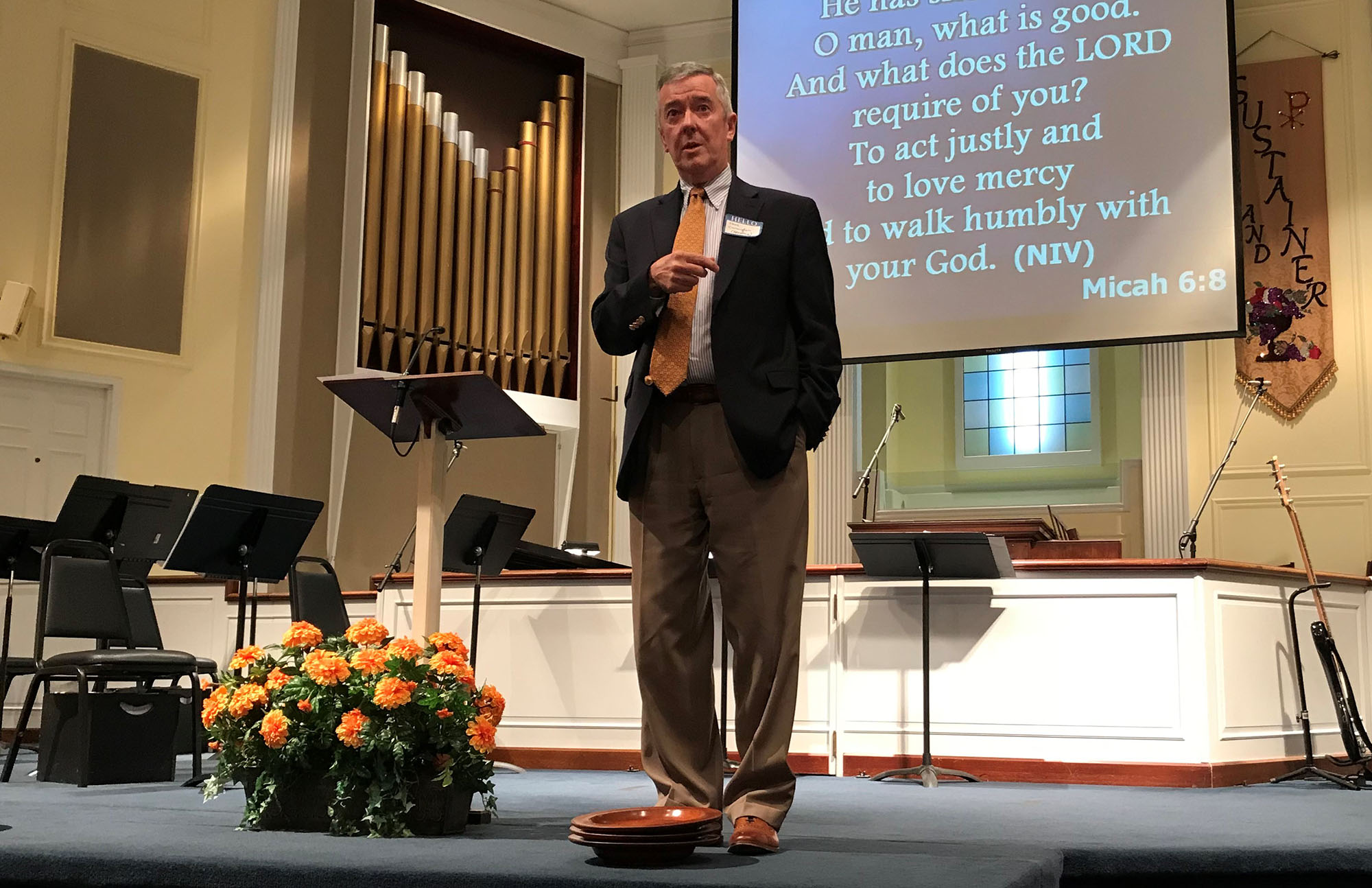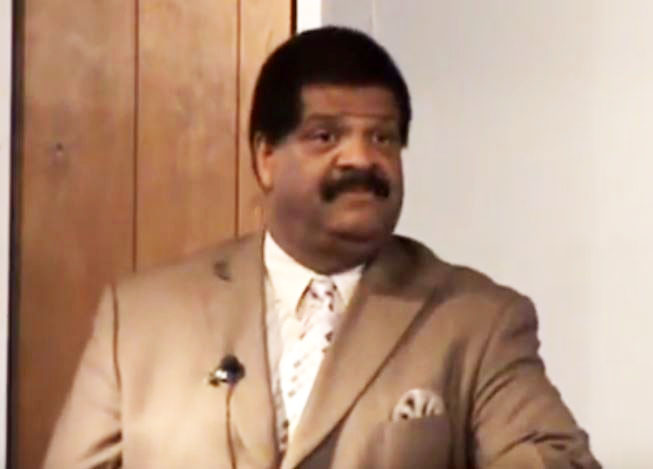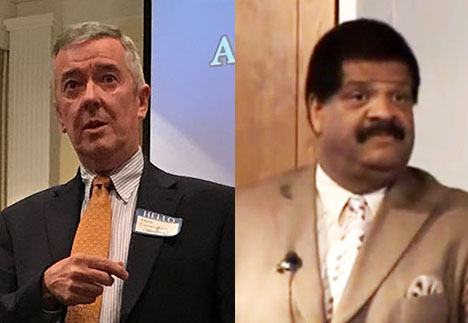
CINCINNATI (BP) — Civil unrest sparked by the 2014 shooting of Michael Brown in Ferguson, Mo., opened Mark Snowden’s eyes to a dilemma. What is the responsibility of Southern Baptist pastors in seeking the social justice that Jesus would demand?
 Snowden, now director of missional leadership for the Cincinnati Area Baptist Association (CABA), assembled a diverse team of four Cincinnati pastors to study the question of justice from a biblical standpoint. The result is a new report focused on societal and biblical truths from the study group and a list of seven recommendations from Snowden available to pastors within the association and online.
Snowden, now director of missional leadership for the Cincinnati Area Baptist Association (CABA), assembled a diverse team of four Cincinnati pastors to study the question of justice from a biblical standpoint. The result is a new report focused on societal and biblical truths from the study group and a list of seven recommendations from Snowden available to pastors within the association and online.
The paper, presented during the CABA annual meeting Oct. 9 at Mt. Carmel Baptist Church in Cincinnati, is a call for Southern Baptist pastors to study practical ways to respond to such societal ills as poverty, hunger, geographically based unemployment, racism, criminal injustice, opioid addiction and other problems, Snowden told BP Oct. 13.
“If you say the name Ferguson, Mo., people are very aware of the racial tension and the rioting,” said Snowden, who was involved in a subsequent prayer meeting as the Missouri Baptist Convention’s evangelism and discipleship strategist.
“And I saw a lot of our churches standing on the sidelines.”

In such cases “do our Southern Baptist churches just stay on the sidelines?” Snowden asks. “What does it take for us to be able to engage properly as we should, as followers of Jesus? This study is at least trying to help us say, ‘What does the Bible say to address that?'”
Study group member Jerome Byrd, an African American and founding pastor of the 30-year-old Good News Baptist Church in Cincinnati, said America is in great need of social justice.
“Our society is in deep trouble, deep trouble, and all we have to do is look at the news, look at the internet, and we can easily see that we are so far away from the standards of God,” Byrd told BP.
“The only way we can come back to those standards is for godly men to stand up in their pulpits in their churches and proclaim what thus sayeth the Lord, and to do it boldly, to do it strongly, and then encourage their people to embrace the Scriptures and to live out the examples that Jesus showed us when it comes to social justice,” Byrd said.
Study group chairman Lance Cunningham, Mt. Carmel Baptist Church pastor and annual meeting host, described the goal of conducting the study as “a wrestling with your own soul.”
In compiling the Bible-based study, which Cunningham calls a theologically based pastoral call, the study group had to consider whether they themselves were righteous and not self-righteous, whether they had a right relationship not just with God but with others, and whether they viewed others with mercy and humility.
Christians are separated today by age, generational differences, nationality, socioeconomic differences and other characteristics that make it difficult to effectively discuss societal ills and consider solutions, Cunningham said.
“I want people to approach one another in grace,” Cunningham told BP, but he said “there’s a huge divide” among Christians regarding the application of grace. “Grace to some people means you’re going to approve of me and applaud me no matter what I say, what I do and you’re going to condone it…. It’s not within our authority to condone that which is evil, nor to condemn that which is approved.”
Brandon Caudill, pastor of Voyager Church in Cincinnati, and Darrell Hammons, pastor of New Hope Baptist Church in Loveland, also served on the study group, which Snowden convened in April.
The study group landed on biblical justice as the answer to social justice, said Cunningham, who would like pastors to consider the findings and be proactive in going forward.
“We have to have compassion on everybody involved. That’s what Jesus does,” Cunningham said. “He’s compassionate … even when He stands firmly against Pharisees and Sadducees, He’s doing it out of compassion, hoping they’ll see the error of their ways, because they’ve always been top dog, they’ve always run the show, that’s the routine, and they’ve never met somebody who could stand against them. But I don’t think He was filled with hate towards them; I think it’s compassion.”
The association took no formal action on the study and does not expect to adopt any official statement or recommendations, Snowden said.
“We consider it in the churches’ hands and raised it as a tool. If nothing else, it’s a reference point,” Snowden told BP. “But I do hope that churches will be able to take this paper, be able to read it, study it, especially among church leaders, and then be able to respond and not just sit on the sidelines.”
Two pastors approached him shortly after the meeting, Snowden told BP, and said they would use the report to frame conversations on social justice, which had never been undertaken at their churches.
The report and recommendations on how to engage the issue are available on the front page of CABA’s website, CincinnatiBaptist.com.
















